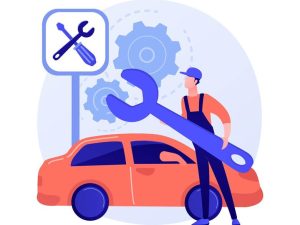Most drivers want automotive workshops they can trust with their cars’ maintenance and repairs. Auto repair takes skill, and it is important work that keeps vehicles running safely. Good workshops always focus on customers as much as the cars.
 Any driver visiting a repair shop expects fair pricing, open communication, and a job done right. Customer service means shops respect drivers’ time plus answer all their questions. Automotive workshops need regular customers who will bring back future business or refer others. This relies on drivers feeling listened to.
Any driver visiting a repair shop expects fair pricing, open communication, and a job done right. Customer service means shops respect drivers’ time plus answer all their questions. Automotive workshops need regular customers who will bring back future business or refer others. This relies on drivers feeling listened to.
This article looks at the best ways automotive workshops can deliver excellent service. From paperwork to payment, repairs mean cooperation between workshops and drivers. Car workshops using top customer practices can give drivers the care they seek while also keeping loyal customers long-term. Let us explore some keys to quality service shops use to keep drivers happy.
Visit https://medium.com/@SumeetKhanna/what-are-the-characteristics-of-a-good-auto-repair-mechanic-c366d4473ef3 to learn more about the characteristics of a good auto repair workshop.
Effective Communication of Repair Costs and Timelines
Giving clear pricing helps every customer feel comfortable. Estimates let drivers know what to expect to pay before greenlighting work. Shops invite questions so customers understand extra costs like shop supplies.
Technicians finding more issues do not upset trusting shop-customer ties. Shops promptly update estimates once extra needs surface, like corroded brake lines. With explanations, customers accept sometimes repairs demand unexpected labor or parts costs.
Timelines require the same honesty. If something takes longer to fix than first assumed, shops call customers ASAP. No one wants nasty surprises! Some even guide customers through the next vehicle maintenance steps if repair work seems light.
Streamlined Check-in and Check-out Processes
When drivers arrive for appointments, check-in should go smoothly. Some car workshops now offer digital forms on tablets or mobile apps like Shop Boss mechanic software, which saves paper and lets customers fill out everything from their vehicle safely in the parking lot. Some even let regulars check in from home before arriving.
Automotive workshops should clearly post wait times and loaner car policies to prevent frustration. They can also be more upfront about workloads and can call ahead on delays. This proves vehicle repair shops respect drivers’ schedules like their own.
Efficient staging of cars helps repair shops shave minutes. Technicians can note requested work sooner and perform quick pre-scans, which means less time is needed to diagnose issues when work starts.
Just as important is a clear checkout process. Customers hate unknowns, like unclear pickup times. Workshops should tell drivers when work will end and when cars will be ready again. They should also notify clients promptly of any changes through phone calls or texts.
Keeping customers informed prevents wasted trips. Good workshops smoothly guide cars from the driveway to diagnostic bays so they can do work without confusion at each step. This leaves drivers feeling the auto repair garages take their time as seriously as their car repairs.
Building Trust Through Transparency
Shops build faith by showing clients what they buy. Viewing diagnostic printouts or camera scans creates understanding. Discussing methods and reasons behind recommendations avoids distrust that arises from secrets.
Techs win over clients when they take a few extra minutes to do work. When they compare worn rotors to new ones by the customer’s side, it teaches them brake signs for next time. Pictures of leaking valves or worn plugs on a tablet can provide value beyond the invoice.
Transparent cost breakdowns also reassure customers. Dividing labor and part totals shows clients that nothing is hidden in lump pricing. Requesting input on repairs’ priority shares control and solicits advice, too.

Trust grows when shops provide thorough explanations. Clients are willing to learn to gain the know-how to spot future auto red flags themselves. That leads to relying fully on shops to stay well-maintained without vigilance.
Technicians’ openness lends great faith to their clients. Drivers feel cared for as partners, not just repair jobs with no knowledge. This breeds loyal customers who freely bring friends, too. Here are a few key benefits of building a loyal clientele.
Providing Reliable Pickup and Drop-off Services
Shops know downtime means changes to work and travel. That is why loaner cars help until a person’s vehicle is fixed. Rental vehicles allow trips to continue while repairs happen. Some shops even bring loaners right to customers, solving transportation problems.
Not everyone finds it easy to leave home. Shops offering free rides help everyone get repairs done. Staff pick up cars from porches and return them when done, keeping independence.
Nothing upsets clients more than wasted effort. Shops that update work progress by phone or picture messages cut out unneeded visits. Knowing the exact time a car will be ready also avoids wasted time.
Bottom line
Good customer service brings shops success. Using these best practices makes each interaction run smoothly while keeping clients comfortable. Trust forms through honesty and respecting drivers’ schedules as much as vehicle repairs.
Seeing work done clears up value, reassuring clients that the cost stays fair. Updates prevent frustrations like wasted trips. Helping with transport further proves shops serve people, not just machines.
More than mechanical abilities lie in serving people and earning trust with every visit. In the end, delighted customers drive any shop’s long-term success most of all.







